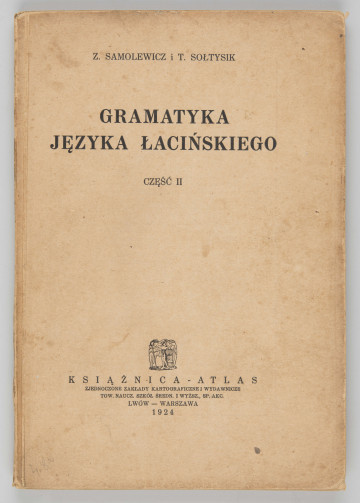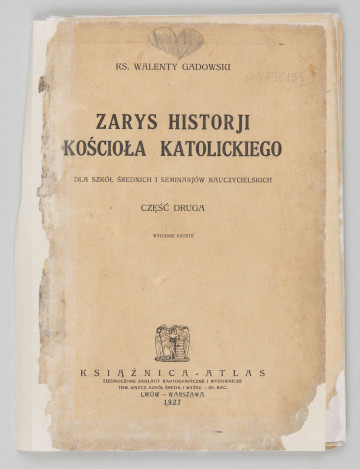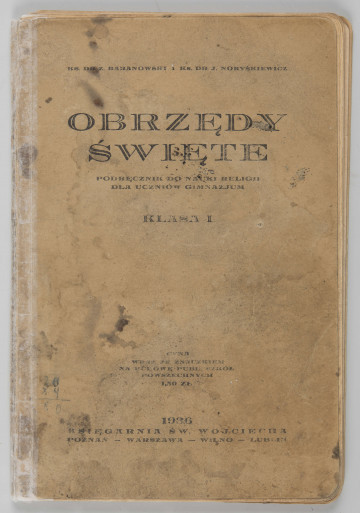
Latin grammar book
1924
National Museum in Lublin
Part of the collection: Memorabilia related to education and scouting in Lublin 1918–1944
The first primers for learning Polish were developed at the end of the Middle Ages. Nauka krótka ku czytaniu pisma polskiego (Short Manual for Learning to Read Polish), published in 1570, is considered to be the oldest known Polish language primer. The real development of manuals took place in the 18th century. At that time, the National Education Commission established the Society for Elementary Books, which was to provide elementary schools with textbooks. The authors of textbooks began to use modern methods of teaching reading and writing, for example, breaking down words into sounds and letters.
The primers were not limited to issues related to literature, they also imparted knowledge about religion, accounts, nature, geography and music, among others. Their authors often published their books at their own expense.
Nevertheless, the ability to write and read in Polish society was still limited. It is assumed that in 1921 as much as 33 percent of the citizens of the Republic of Poland were illiterate. The newly published primers, of which Marian Falski’s book played the greatest role, helped to fight this phenomenon. Its first version was published in 1910, and in 1921 the author updated his teaching methods and published Elementarz powiastkowy dla dzieci (A Literary Primer for Children). In the interwar period, Falski’s book was compiled in many versions intended for different students. The primer was published until 1982, with updates (also reflecting political changes).
By 1931, illiteracy in Poland had dropped to 23 percent. However, there were still regions where it exceeded 50 percent (especially in the Borderlands). About 38 percent of rural residents still could not write or read.
The primer in the collection of the Museum of Martyrdom ‘Pod Zegarem’ is unidentified. Only pages 19-68 have been preserved. The first part of the textbook is devoted to learning letters and sounds, as well as putting them into words. The difficulty level increases with each lesson, the texts become longer and the words more complicated. The next part of the primer contained short readings – prayers, poems or stories. Illustrations, including ones in colour, and music notes were to help in learning.
The pages of the primer contain illustrations of a student using the book and his notes that were to help him learn.
Author / creator
Dimensions
cały obiekt: height: 28 cm, width: 22,5 cm
Object type
book
Technique
manual script
Material
paper, crayon, pencil, ink
Creation time / dating
Creation / finding place
Owner
The National Museum in Lublin
Identification number
Location / status

1924
National Museum in Lublin

1927
National Museum in Lublin

1936
National Museum in Lublin
DISCOVER this TOPIC
Castle Museum in Łańcut
DISCOVER this PATH
Educational path